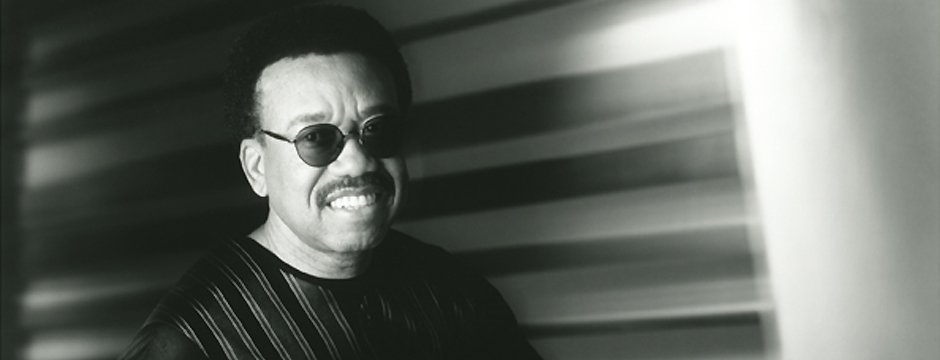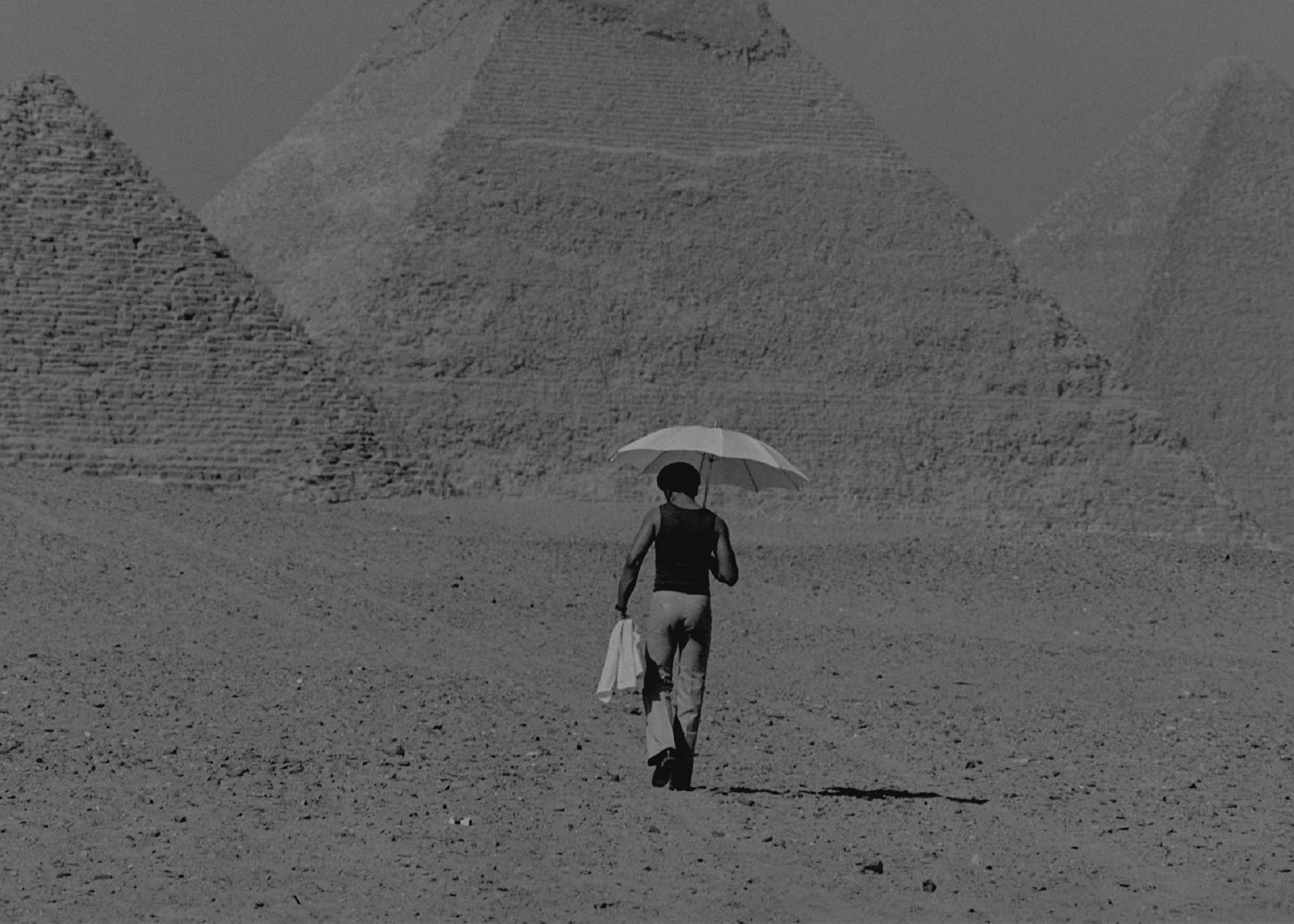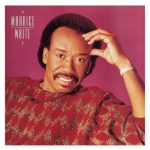Bio

Maurice began his musical journey as a drummer while still in high school. His first professional performance was with Booker T. Jones, who eventually achieved stardom with Booker T and the MGs.
After graduating high school, Maurice moved to the Windy City to continue his musical education at the prestigious Chicago Conservatory Of Music. He continued picking up drumming jobs on the side, which eventually lead to a steady spot as a studio percussionist with the legendary Chicago label, Chess Records. At Chess, Maurice had the privilege of playing with such greats as Etta James, Fontella Bass, Billy Stewart, Willie Dixon, Sonny Stitt and Ramsey Lewis, whose trio he joined in 1967. He spent nearly three years as part of the Ramsey Lewis Trio. “Ramsey helped shape my musical vision beyond just the music,” Maurice explains. “I learned about performance and staging.” Maurice also learned about the African thumb piano, or kalimba, an instrument whose sound would become central to much of his work over the years.
In 1969 Maurice moved to Los Angeles to form his own band, initially called the Salty Peppers. That band featured Maurice on vocals, percussion, and kalimba, along with keyboardists/vocalists Wade Flemons and Don Whitehead. The Peppers recorded “Uh Huh Yeah” b/w “Your Love Is Life” for Capitol Records, but did not manage to reach a large audience. Maurice switched labels in 1971, signing a new contract with Warner Brothers. He simultaneously made what may have been the smartest move of his young career: he changed the band’s name to Earth, Wind & Fire, after the three elements in his astrological chart. The new name also captured Maurice’s spiritual approach to music, a brand of music that transcended categories and appealed to multiple artistic principals, including composition, musicianship, production, and performance. In addition to White, Flemons, and Whitehead, the original lineup included Michael Beal on guitar, Leslie Drayton, Chester Washington and Alex Thomas on horns, Sherry Scott on vocals, and percussionist Phillard Williams.
Earth, Wind & Fire recorded two albums for Warner Brothers: the self-titled 1970 album Earth, Wind & Fire and the 1971 album The Need Of Love (the ballad “I Think About Lovin’ You” featured vocals by Jessica Cleaves and hit number 44 R&B in early 1972), as well as scoring Melvin Van Peebles’ pioneering independent feature Sweet Sweetback’s Baadasssss Song. Maurice became disillusioned with Warner Brothers, which had signed the group primarily as a jazz act. Maurice, in contrast, was more interested in combining elements of jazz, rock, and soul into an evolving form of fusion, a truly universal sound. This time, he did more than jump labels. In addition to signing a new contract with Columbia, he completely retooled Earth, Wind & Fire’s lineup. Flemons and Whitehead left the group, which now featured vocalists Philip Bailey and Jessica Cleaves, guitarist Johnny Graham, guitarist/percussionist Al McKay, and Maurice’s younger brother Verdine on bass.
With Columbia Records, debuting with the 1972 album Last Days And Time, the group slowly began to build a reputation for innovative recordings and exciting, live shows, complete with feats of magic (floating pianos, disappearing acts) engineered by Doug Henning. Their first gold album, Head To The Sky, peaked at number 27 pop in Summer 1973, yielding a smooth tangy cover of “Evil” and the title track single. The first platinum EWF album, Open Our Eyes, whose title track was a remake of the classic originally recorded by Savoy Records group the Gospel Clefs, included “Mighty Mighty” (number four R&B) and “Kalimba Story” (number six R&B). Maurice once again shared a label roster with Ramsey Lewis, whose Columbia debut, Sun Goddess, was issued in December 1974. The radio-aired title track was released as a single under the name Ramsey Lewis and Earth, Wind & Fire went to number 20 R&B in early 1975. A smoking cover of Stevie Wonder’s 1973 number one R&B hit “Living For The City” got massive airplay. The Sun Goddess album went gold, hitting number 12 pop in early 1975. Maurice had also played on Lewis’ other high-charting album, Wade In The Water; the title track single peaked at number three R&B in Summer 1966.
The inspiration for one of EWF’s most beloved singles, “Shining Star,” was gleamed from thoughts Maurice had during a walk under the star-filled skies that surrounded the mountains around Caribou Ranch, CO, a popular recording site and retreat during the ’70s. The track was originally included in the That’s The Way Of The World movie that starred Harvey Keitel and was produced by Sig Shore (Superfly). “Shining Star” glittered at number one R&B for two weeks and hit number one pop in early 1975. It was included on their 1975 multi-platinum album That’s The Way Of The World that held the number one pop spot for three weeks in Spring 1975 and earned them their first Grammy Award. The title track single made it to number five R&B in Summer 1975. It also yielded the classic ballad “Reasons,” an extremely popular radio-aired album track.
The multi-platinum album Gratitude held the number one pop album spot for three weeks in late 1975. On the album was “Singasong” (gold, number one R&B for two weeks, number five pop), the Skip Scarborough ballad “Can’t Hide Love” (number 11 R&B), and the popular radio-aired album tracks “Celebrate,” “Gratitude,” and the live version of “Reasons.” In 1976, Maurice decided he wanted to record a spiritual album. The multi-platinum album Spirit parked at number two pop for two weeks in Fall 1976 and boasted the gold, number one R&B single “Getaway” and “Saturday Nite.” Spirit is remembered as one of EWF’s best albums and sadly for also being the last project of Charles Stepney who died May 17, 1976, in Chicago, IL, at the age of 45. Charles was a former Chess arranger/producer/session musician/multi-instrumentalist/songwriter and Maurice’s main collaborator on his EWF projects. The multi-platinum album All ‘N All peaked at number three pop in late 1977, won three Grammys, and had arrangements by Chicago soul mainstay Tom Tom Washington and Eumir Deodato. The singles were “Serpentine Fire” (number one R&B for seven weeks) and “Fantasy.” The group’s horn section, the legendary Phenix Horns (Don Myrick on saxophone, Louis Satterfield on trombone, Rahmlee Michael Davis and Michael Harris on trumpets) became an integral part of the Earth, Wind & Fire sound.
During this time, Maurice produced several artists such as The Emotions (1976′s Flowers and 1977′s Rejoice which included the number one R&B/pop hit “Best Of My Love”) and Deniece Williams (1976′s This Is Niecy which included the Top Ten R&B hit “Free”). In the late seventies, in association with Columbia Records, Maurice also launched a record label, ARC.
The multi-platinum greatest-hits set The Best Of Earth, Wind & Fire, Vol. I included a cover of the Beatles’ “Got To Get You Into My Life” went to number one R&B and number nine pop in Summer 1978. The group performed the song in the 1978 Bee Gees/Peter Frampton movie Sgt. Pepper’s Lonely Hearts Club Band. Another single, “September,” made it to number one R&B, number eight pop in early 1978. On the flip side was the enchanting popular radio-aired album track “Love’s Holiday” from All ‘N All.
Their live performances were stellar as well. Sellout crowds were spellbound by the band’s bombastic performances, which blasted a cosmic wave of peace, love, and other happy vibrations at audiences using a combination of lights, pyrotechnics, and plain old good music. Sometimes they even threw in magic illusions. Earth, Wind & Fire’s message was one of universal harmony, in both musical and cultural senses. “We live in a negative society,” Maurice told Newsweek. “Most people can’t see beauty and love. I see our music as medicine.”
The multi-platinum album I Am hit number three pop in Summer 1979 on the strength of the million-selling single “Boogie Wonderland” with The Emotions (number two R&B for four weeks, number six pop) and the phenomenal gold ballad “After The Love Has Gone,” written by David Foster, Jay Graydon and Bill Champlin that stayed at number two R&B/pop for two weeks. Their Faces album peaked at number ten pop in late 1980 and was boosted to gold by the singles “Let Me Talk” (number eight R&B), “You” (number ten R&B), and “And Love Goes On.”
The million-selling funked-up “Let’s Groove,” co-written by The Emotions’ Wanda Vaughn and her husband Wayne Vaughn, was the track that re-energized EWF’s career, parking at number one R&B for eight weeks and number three pop, causing their Raise! album to go platinum, hitting number five pop in late 1981. Their next gold album Powerlight made it to number 12 pop in Spring 1983 and included the Top Ten R&B single and Grammy-nominated “Fall In Love With Me.” Their 1983 Electric Universe album stalled at number 40 pop, breaking the band’s string of gold, platinum and multi-platinum albums.
In 1983, Maurice decided he and the band needed a break. He signed a solo deal with Columbia that resulted in a sweet cover of Ben E. King’s 1961 hit “Stand By Me” (number six R&B). Maurice White, issued in Fall 1985, also included the chimey, island-flavored “Switch On Your Radio” and the airy ballad “I Need You,” a radio-aired album track. Maurice also used the break to launch his own company, Kalimba Productions. Kalimba produced albums over the next several years by the likes of The Emotions, Ramsey Lewis, Deniece Williams, Valerie Carter, Barbra Streisand, Neil Diamond, El DeBarge, and Jennifer Holliday.
Reuniting with EWF in 1987, the group released the album Touch The World and scored yet another number one R&B single, “System of Survival,” and embarked on a corresponding nine-month world tour. This was followed by the 1988 release The Best Of Earth, Wind & Fire Vol. II.
In 1990 the group released the album Heritage. Two years later, Earth, Wind & Fire released The Eternal Dance, a 55-track boxed set retrospective of the band’s entire history. The appearance of such a project after a prolonged period of relative inactivity signaled to many listeners that the band was calling it quits, but that did not turn out to be case. In 1993, EWF released the album, Millennium which included the Grammy-nominated “Sunday Morning,” and “Spend The Night.”
Earth, Wind & Fire kept recording and in 1996, released Avatar and Greatest Hits Live, followed by 1997′s In The Name Of Love, 2002′s That’s The Way Of The World: Alive In ’75 and Live In Rio, 2003′s The Promise, which included the Grammy-nominated “Hold Me,” 2005′s Illumination, which included the Grammy-nominated “Show Me The Way,” and the 2006 re-release of In The Name Of Love.
In 2000, the nine-piece ’70s edition of Earth, Wind & Fire reunited for one night only in honor of their induction into The Rock And Roll Hall Of Fame. Even though Maurice was no longer a part of the touring group, he remained the band’s heart and soul from behind the scenes, as composer and producer. “After thirty years of living out of a suitcase, I’ve decided to concentrate on the next phase of my career,” boasted a re-energized Maurice. His considerable talents were poured into a variety of projects that encompassed many diverse arenas. He continued to write and produce music as well as develop new talent. “Music is my passion and it is a medium in which people of all backgrounds and makeup can communicate,” Maurice said. “In this next chapter, I look forward to bring together artists of the highest quality, to create music that stimulates and encourages people to be their very best.”
In 2006, Maurice collaborated with dancer, actor, choreographer, director, and singer Maurice Hines on the Broadway dance musical Hot Feet. The contemporary urban play featured Hines’ choreography and direction set to White’s Earth, Wind & Fire hits, including “Shining Star,” “September,” “Boogie Wonderland,” “That’s The Way Of The World,” “Getaway,” “Serpentine Fire,” “Fantasy,” “System Of Survival,” “Mighty Mighty,” “In The Stone,” and “After The Love Has Gone,” as well as original songs that were composed for the show, such as “Dearest Heart,” “Hot Feet,” “You Don’t Know,” “Kali,” and “When I Dance.”
Interpretations: Celebrating The Music of Earth Wind & Fire (2007) – Ten of “The Fire’s” most memorable pieces as rendered by ten contemporary artists who owe the group a substantial measure of debt. This auspicious project was the inaugural release for Concord’s newly reactivated Stax label. Features Angie Stone (on “Be Ever Wonderful”), Kirk Franklin (“September”), Chaka Khan (“Shining Star”), Ledisi (“Devotion”), The Randy Watson Experience featuring Bilal (“Can’t Hide Love”), Dwele (“That’s The Way Of The World”), Meshell Ndegeocello (“Fantasy”), Lalah Hathaway (“Love’s Holiday”), Musiq Soulchild (“Reasons”), and Mint Condition (“After The Love Has Gone”)!
In 2010, Maurice along with fellow Earth, Wind & Fire band members, Philip Bailey, Verdine White, Larry Dunn and Al McKay were inducted into The Songwriters Hall Of Fame.
In 2013, Maurice relaunched his Kalimba Music label. The label is focused on partnering with innovative artists for the Contemporary Jazz Market. Their current roster includes keyboardist Greg Manning, guitarist Adam Hawley and saxophonist Paula Atherton.
In 2016, Earth, Wind & Fire received the GRAMMY Lifetime Achievement Award.
On February 4th, 2016, Maurice passed away after a long battle with Parkinson’s disease, he was 74.


